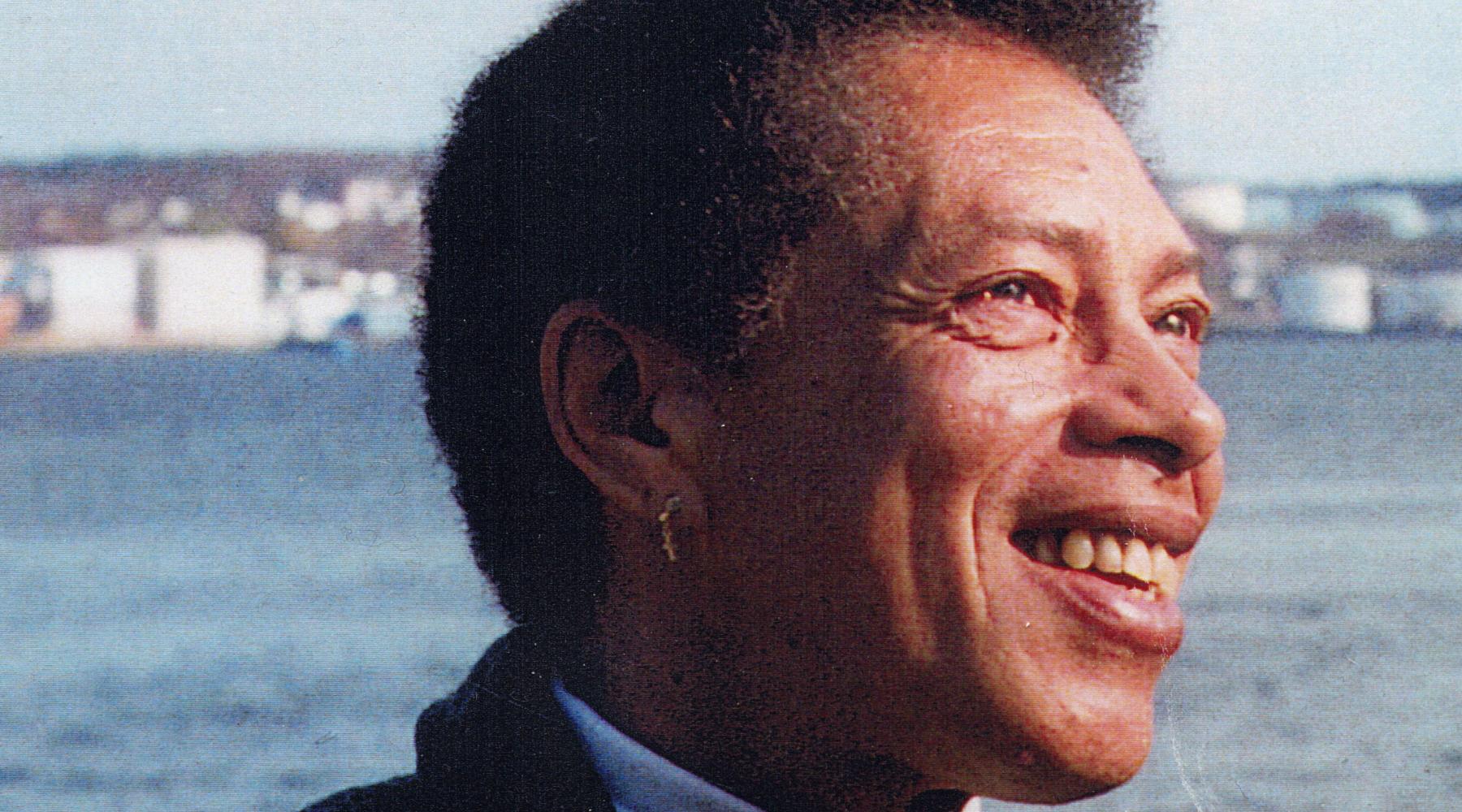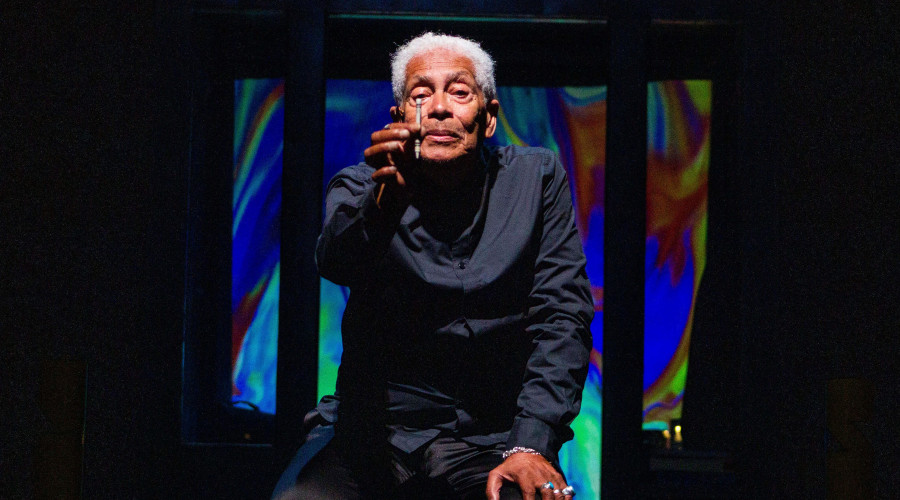At that time, they called the balcony “n*gger heaven,” and that was where the Black people were supposed to sit. Growing up in such a segregated time, Borden never anticipated becoming an actor.
Not only did he become an actor, but Borden made history by writing one of the first plays to feature themes of queerness from a Black perspective. His talent earned him the Order of Canada, the Order of Nova Scotia, and the Queen Elizabeth II Golden, Diamond, and Platinum Jubilee Medals, among other accolades.
Borden was born in New Glasgow in 1942 and grew up in a typical Black community. He says that meant living on the fringes of society. “Most Black communities in Nova Scotia at that time were situated on the outskirts of the town or on the other side of the tracks.”
Though Borden never anticipated becoming an actor, he can remember his first performance. “It was December of 1953, when I was 11. It was a Christmas show. I even remember my first line on stage. But, what impacted me at that time was that I stood there on this little stage, and my mother and two of my aunts and an uncle were seated in front of me along with all the rest of the people who were there to see the little performance. I was aware of how people responded as I said my little lines and did what I had to do. I was also very aware of the people looking at me in a particular kind of way.” Upon reflection, Borden realized this attention came from a combination of things, including the racial dynamics in 1953.
Borden compares his childhood environment to the Deep South. “There was segregation in terms of restaurants, there was segregation in terms of where you sat in movie houses.” He recalls the Roseland Theatre, where Viola Desmond historically protested her seat.
However, Borden says that Nova Scotia schools operated with more acceptance. He joyfully remembers some teachers who were so kind it was a “haven away” from the outside system. This inner school system of acceptance allowed Borden to be up on stage at that Christmas play. “I also saw how my parents and my uncles and aunts looked at me as if they didn't know me and were very proud of me. Seeing this little one they interacted with 24/7, he was suddenly different. The moment that I saw how people were reacting to me, it separated me, even for that little time, from the person that they knew. I remember thinking, ‘This is what power is’”.
This same moment that brought such joy also brought discomfort. Borden recalls that when he auditioned, he overheard teachers saying that he was the best performer but could not play the lead role of Santa Claus since he was Black.
The racism in New Glasgow and this innate awareness within Borden led him to become an activist within his acting and artistry. With 54 professional years under his belt, he calls himself an “artist-activist”.

In 1965, Borden became affiliated with Rocky and Joan Jones, who brought the Black Panther movement to Halifax. Through this connection, Borden met Harry Belafonte and learned from him the importance of being part of a movement and still being an actor.
“His closest friend was Sidney Poitier. They were both involved in the whole Civil Rights movement. But it was decided that Sidney would emphasize the artistic. Harry would take on the activist role, and you could see how the careers went. That's why I related so much to Harry; when push came to shove, the activist was going to take front and centre, which would mean that your artistic career was going to suffer. You had to be ready to accept that. I couldn't talk about those things until I met him. That has really travelled with me right until now.”
Borden started writing Tightrope Time on August 4th, 1974. It has evolved since then. In 1984, a nine-person version of this play, then called Tightrope Time: Ain't Nuthin' More Than Some Itty Bitty Madness Between Twilight and Dawn, was one of the first plays to have a Black person portray a gay character. Since then, the play has undergone changes and was finalized as The Last Epistle of Tightrope Time and performed at the National Arts Centre in Ottawa in 2022.
The play came from Borden’s lived reality, who says the conversations that sparked this work in 1966 are similar to those still in 2024. It is a one-man show with various characters that appear discussing racism, homophobia and poverty.
Borden’s primary character, titled Black Man Talking speaks with a drawl or tone readers can identify as ebonics. Borden expands on topics such as the over-sexualization of Black women, the toxic masculine stereotypes of Black men in the ‘ghetto,’ feeling like a spectacle in his own home as a Black child and homophobia he experienced specific to his existence as a Black man. The characters Borden voices range from male and female sex workers, a pastor, an Estlusti Indigenous Spirit and people they encounter as they discuss the realities of being Black on the fringes of life.
Recently Borden acted in Midsummer Night’s Dream in Halifax. While in costume, sitting amongst the audience, waiting for his line, a woman who saw Tightrope Time two years prior recognized him and commended him on his work. She said, “I wanted to tell you that when you come on stage for about ten minutes or so, you say nothing and you just move things. I kept thinking, ‘I just wanted to watch those ten minutes over and over and over for the whole play because that was the full price of admission there.’ Borden thanked her while getting ready to mentally jump back into character.
At a time, Borden can recall being one of the only professional actors east of Montreal, on top of being Black and gay. Now, he sees so many people doing the work as activists and actors doing the work. Though 82, he would also describe himself as “in the trenches” with acting and activism. “When someone says, ‘Are you going to retire?’ What does that mean? Retire? No. As long as I can memorize a new line. Fine.”
Walter says he would prefer to “drop dead on stage” and feels he must continue to act because it is his duty. “I was given a set of abilities to do it. That's your gift. You don't know why you, you don't even bother asking why, you have this talent. The fact is you have the gift that you have. Your duty is to use it. Your duty is to know why you're using it.”
Walter will release a memoir in 2026, followed by a book of poetry, and is also working on a new play in Halifax.

 By
By 





